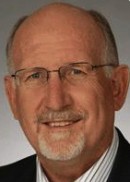My Word: Religions agree on safeguarding the poor
 (Orlando Sentinel, April 30, 2012)
(Orlando Sentinel, April 30, 2012)
By James Coffin
U.S. Rep. Paul Ryan says his budget, passed by the House, is based on his Catholic faith. A series of letters sent to legislators and other government entities makes clear that the U.S. Conference of Catholic Bishops doesn’t share Ryan’s perspective.
Ryan’s budget fails the test, the bishops argue, because the poor, the disadvantaged, the vulnerable constitute a moral obligation. Most of the world’s religions would concur.
Islam is based on five pillars, the third being zakat, or almsgiving. This pillar of the faith describes our human responsibility to the poor, the orphan, the widow — to any who are in need. “This is an obligation from Allah,” the Quran declares.
Sikhs subscribe to the principle of wand chhakna — the obligation to give liberally to the sick, the needy, the poor. Humans are to emulate the generosity of the divine example: “The unique Lord is … the Giver to all. In His giving, there is no stint.”
In the Rabbinic writings, charity is enjoined through the word tzedakah, which means righteousness, justice, fairness. It encompasses all social justice. Judaism calls for giving not only to meet the material need of the disadvantaged, but to fill a spiritual need in the giver. In outlining the ancient safety-net provisions for the poor, the Hebrew scriptures repeatedly say: “Remember that you were slaves in Egypt.”
Buddhism likewise emphasizes the spiritual blessing to the giver. Such acts produce good karma. The Buddha is said to have once told a group of monks, “Whoever serves the sick and suffering, serves me.”
Christianity echoes a similar sentiment. Jesus said concerning humanitarian acts: “Whatever you did for one of the least of these … you did for me.”
M.K. Ghandi, perhaps Hinduism’s most high-profile proponent of the 1900s, taught that everyone is a part of God. And we all share the same world. Therefore, we have an obligation to care for one another. Moreover, service to others is the best avenue to understanding self and discovering God.
Good people may differ concerning which mechanisms can most efficiently deliver the morally mandated help and which approaches are the most effective in the long run. But people of all major faiths need only look to their own holy writings and their own faith’s proponents to discover a universally shared understanding of the spiritual/moral obligation to take seriously the plight of the disadvantaged.
If we’re going to substantially alter the way this moral obligation is met, we must ensure that an alternative method is in place before we dismantle or dramatically alter the existing structures and safety nets.
James Coffin is executive director of the Interfaith Council of Central Florida.
